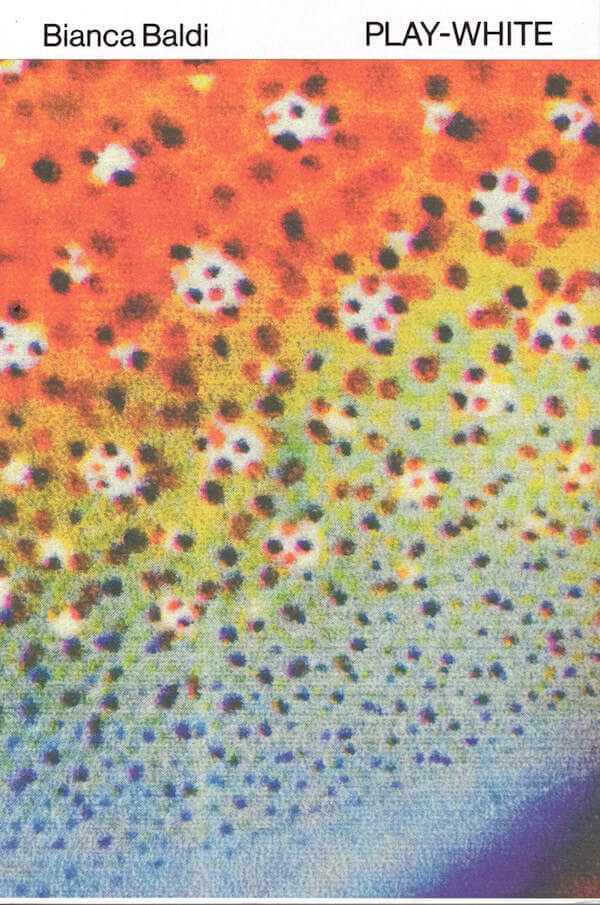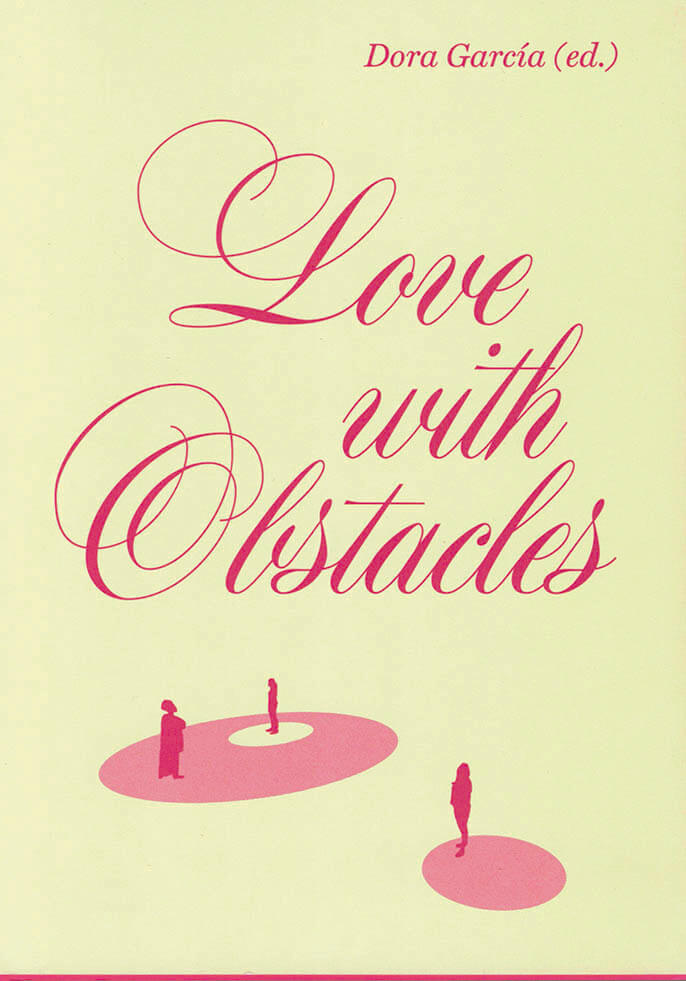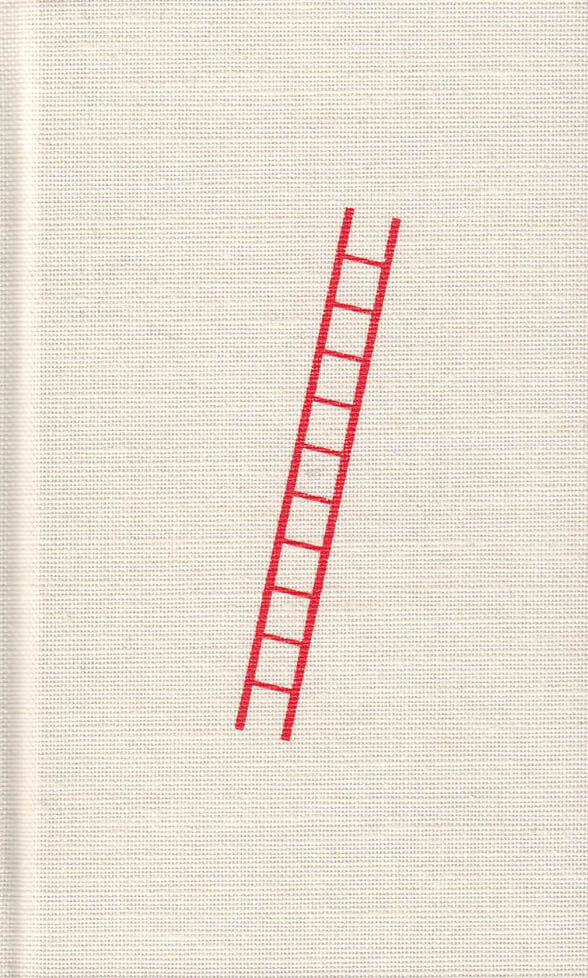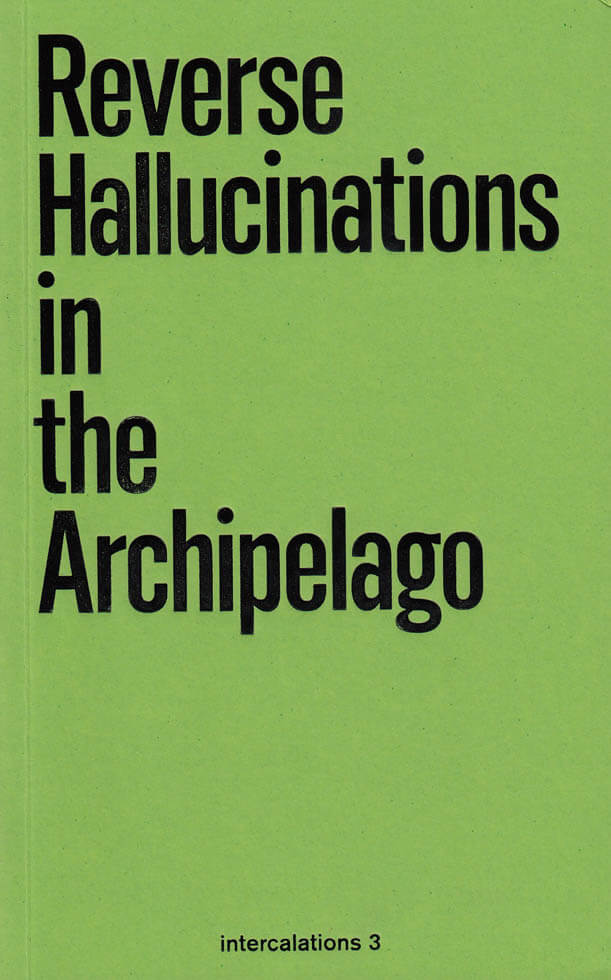K. Verlag
K. Verlag

Scores for daily living
This idiosyncratic publication assembled by Berlin-based dancer and visual artist Emma Waltraud Howes and her collaborators operates from the viewpoint that embodied history offers important information for survival. Through live performances and material works, Howes explores how notation and scores can be used to navigate the everyday and act as a basis for practical exercises that help to maintain a tether amidst the chaos. The paginated choreography Scores for Daily Living is the second K. publication by Howes, following Ankyloglossia (2014); by relaying variations on rhythm and gait, gravity and grace, this new volume shares with readers a series of poetic engagements focusing on different states of self-empowerment and the connections between labor, ritual, and civilization.
Emma Waltraud Howes works as a translator between movement and form. Her focus is on the development of an expanded choreographic practice that incorporates public interventions, kinaesthetic and architectural research, and graphic scores for performances. Her interdisciplinary works are informed by her background in dance, performance theory, and the visual arts and are guided by observations of bodily gestures.
Emma Waltraud Howes, Scores for Daily Living. With texts by Federica Bueti, Emma Wolf-Haugh, Anna Karpenko, and Maria Veie Sandvik. With editing by Mark Soo and photography by Trevor Good. German translation by Isabel Bredenbröker and Verena Buttmann. Concept & design by Emma Waltraud Howes and Franziska Morlok.

Radical Film, Art and Digital Media for Societies in Turmoil
Ursula Böckler, Julia Lazarus and 1 more
Can radical film practices help to understand a disintegrating world? Can they have a healing effect? How can we maintain structures of solidarity in the field of radical media production for societies in turmoil and transition? And what does radical cultural practice look like in times such as ours, when everywhere we turn there seem to lurk even more acute challenges?
Edited by members of the Berlin chapter of the International Radical Film Network, this collection investigates practices of audio-visual production that act on and struggle with the conditions of our time. The contributions were created by film practitioners, artists, activists, as well as academics and critics.

Inserts in Real Time: Performance Work 2000–2023
'Inserts in Real Time' is the first monograph on the performance work developed by artist Dora García over the past twenty years. The book contains a conversation between the artist and curator Joanna Zielińska; a selection of her performance scripts; her performances to date, listed, illustrated, described, and contextualized; and three newly commissioned texts – by art historian Sven Lütticken, performance theorist Bojana Cvejić, and Dora García. The publication is co-published with M HKA, Antwerp, and accompanies Dora García’s exhibition 'She Has Many Names'.

Fieldguides for a Preternaturalist 3
‘Fieldguides for a Preternaturalist’ is a series of small chapbooks designed to bring collaborators, audiences, and readers together as part of the project ‘Nothing of Importance Occurred: Recuperating a Herball for a 17th-Century Enslaved Angolan Midwife at the Cape’, initiated by South African artist Wendy Morris. Through speculative investigations of plants-as-archive and storytelling-as-method, the project focuses on retrieving a library of botanical-medicinal knowledge that perhaps informed Morris’s enslaved ancestor. The ‘Fieldguides’ invite collaborators to shed light on this from multiple angles. Joshua Cohen and Johanna Lot are the guest contributors of the third edition.

Fieldguides for a Preternaturalist 2
Fieldguides for a Preternaturalist is a series of small chapbooks designed to bring collaborators, audiences, and readers together within the project Nothing of Importance Occurred: Recuperating a Herball for a 17th Century Enslaved Angolan Midwife at the Cape. Initiated by South African artist Wendy Morris, Nothing of Importance Occurred is an artistic project recuperating missing narratives at the Cape through speculative investigations of plants-as-archive and storytelling as method. It has as its focus the retrieving of a library of botanical-medicinal knowledge that might have informed Morris’s enslaved ancestor, Maaij Claesje of Angola, midwife in the Company Slave Lodge in Cape Town.
The investigation follows streams of contraceptive plant knowledge that flowed to the Cape through the bodies of enslaved women from Angola, Moçambique, and Madagascar, and from India, Indonesia, and Sri Lanka, as well as through the bodies of women emigrating from the Netherlands, and Huguenots fleeing France. The investigation traces practices already existent at the Cape in the healing ecologies of Khoi, Nama, and San women. Because upwards of four million Angolans were trafficked to the Americas, the project follows recorded practices among women there too. This project of recuperation leads towards a polyvocal Herball of contraceptive plants, the collaborative Fieldguides, and a part-fictionalized Return from Cape Town to the interior of Angola.
The Fieldguides are conceived as generators of collaborations, which is to say that they are a means to invite guides to beam light onto the investigation from multiple angles—historical, anthropological, experiential, ethnobotanical, literary, and more. The guides are influential researchers and writers whose insights, experiences, and reflections shaped the investigation. The guides were invited to write towards the project in a word-of-mouth form; each contribution will, in turn, occasion a set of gatherings during which the text will be read aloud.

Fieldguides for a Preternaturalist 1
Fieldguides for a Preternaturalist is a series of small chapbooks designed to bring collaborators, audiences, and readers together within the project Nothing of Importance Occurred: Recuperating a Herball for a 17th Century Enslaved Angolan Midwife at the Cape. Initiated by South African artist Wendy Morris, Nothing of Importance Occurred is an artistic project recuperating missing narratives at the Cape through speculative investigations of plants-as-archive and storytelling as method. It has as its focus the retrieving of a library of botanical-medicinal knowledge that might have informed Morris’s enslaved ancestor, Maaij Claesje of Angola, midwife in the Company Slave Lodge in Cape Town.
The investigation follows streams of contraceptive plant knowledge that flowed to the Cape through the bodies of enslaved women from Angola, Moçambique, and Madagascar, and from India, Indonesia, and Sri Lanka, as well as through the bodies of women emigrating from the Netherlands, and Huguenots fleeing France. The investigation traces practices already existent at the Cape in the healing ecologies of Khoi, Nama, and San women. Because upwards of four million Angolans were trafficked to the Americas, the project follows recorded practices among women there too. This project of recuperation leads towards a polyvocal Herball of contraceptive plants, the collaborative Fieldguides, and a part-fictionalized Return from Cape Town to the interior of Angola.
The Fieldguides are conceived as generators of collaborations, which is to say that they are a means to invite guides to beam light onto the investigation from multiple angles—historical, anthropological, experiential, ethnobotanical, literary, and more. The guides are influential researchers and writers whose insights, experiences, and reflections shaped the investigation. The guides were invited to write towards the project in a word-of-mouth form; each contribution will, in turn, occasion a set of gatherings during which the text will be read aloud.

Play-White
The racist term "play-white" comes from the apartheid era, when it connoted a black or mixed race person who lived as a white person: “So and so is a play-white.” South African artist Bianca Baldi draws from studies of biomimicry and her own family history, as well as literary precedents—such as Nella Larsen’s novel Passing (1929)—to reflect on racial passing and the instability of racial identities. Play-White alternates between layers of visualization and moments of discretion in order to explore questions of presence and evasion beyond their representation in black and white.
With contributions by Bianca Baldi, Mika Conradie, Shoniqua Roach, Amy Watson, and others; design by Katharina Tauer & Wolfgang Hückel in collaboration with K. Verlag.
Published 2021

Love with Obstacles (Amor Rojo)
This is Spanish artist Dora García’s collaborative research on the life and legacy of Alexandra Kollontai (1872–1952), a socialist, activist, feminist, and intellectual. As a Soviet ambassador from 1922 to 1945, she advocated the sexual and social emancipation of women, and implemented many measures women continue to fight for today, such as legalising abortion and protecting women’s rights. Her writings found special resonance in Latin America, where her influence is still felt in contemporary feminist struggles.
The essays “On the Dragon” and “White Bird” are translated into English here for the first time, and are published alongside a selection of poems by Anna Akhmatova.

Traversals
TRAVERSALS is based on a series of conceptual interviews with Dora Garcia, Chris Kraus, Mark von Schlegell, Charles Stankievech, and Jacob Wren originally produced for an installation in an art gallery. As a re-issue of these texts, the publication continues K.'s interest in the book-as-exhibition. Each invited contributor has found a unique way to explore the hybrid spaces between genres and art forms, and the discussions focus especially on the role and relationship between visual art and writing.
While the interview process was rather formalized—with one set of five identical questions posed to each person in the first round, and then five individual questions asked in a second round in response to the first five answers—the texts themselves delight through a personal tone and a great openness for both idiosyncratic trajectories and unexpected traversals between the five different chapters.
Contributors: Dora Garcia, Chris Kraus, Charles Stankievech, Mark von Schlegell, Anna-Sophie Springer, Jacob Wren

The Word For World is Still Forest
The Word for World is Still Forest creates a space for the reader-as-exhibition-viewer to consider how forests may be seen not only for their trees, but also how they can enable experiences of elegance, affirmation, and creation for a multitude of creatures. in response to their violent destruction, which characterizes the Anthropocene, these pages traverse various woodlands by way of their semiotic, socio-political, historical, and epistemic incitements in order to reveal how practices of care, concern, and attention also enable humans to inhabit and flourish in this world as forest. Taking its title from Ursula K. Le Guin’s 1972 novella, The Word for World is Still Forest curates an homage to the forest as a turbulent, interconnected, multinature. Moving from concepts of the forest as a thinking organism to the linear monocultural plantations that now threaten the life of global forests, the volume includes interviews, a photo essay, case studies, reflections, drawings, essays and more.
Contributors: Sandra Bartoli, Kevin Beiler, Shannon Castleman, Dan Handel, Katie Holten, Elise Hunchuck, Silvan Linden, Yanni A. Loukissas, Eduardo Kohn, Pedro Neves Marques, Abel Rodríguez, Carlos Rodríguez, Suzanne Simard, Anna-Sophie Springer, Paulo Tavares Etienne Turpin, Catalina Vargas Tovar

Reverse Hallucinations in The Archipelago
Reverse Hallucinations in the Archipelago unfolds an itinerant encounter with nineteenth-century European naturalists in the Malay world, where the theory of evolution by natural selection emerged alongside less celebrated concerns about mass extinction and climate change; by re-considering the reverse hallucinatory condition of colonial science in the tropics—how scientists learned to not see what was manifestly present—the reader-as-exhibition-viewer may exhume from the remains of this will to knowledge an ethical conviction of particular relevance for confronting forms of neocolonization in the Anthropocene. Reverse Hallucinations in the Archipelago reflects on the changing role of colonial natural history collections in the current ecological crisis called the Anthropocene. The volume features an essay, a science fiction graphic novella, photographs, interviews, and more.
Contributors: Akademi Drone Indonesia, George Beccaloni, Iwank Celenk, Lucy Davis, Fred Langford Edwards, Christina Leigh Geros, Matthias Glaubrecht, Geraldine Juarez, Radjawali Irendra, James Russell, Mark von Schlegell, SLAVE PIANOS, Anna-Sophie Springer Zenzi Suhadi, Paulo Tavares, Rachel Thompson, Etienne Turpin, Satrio Wicaksono